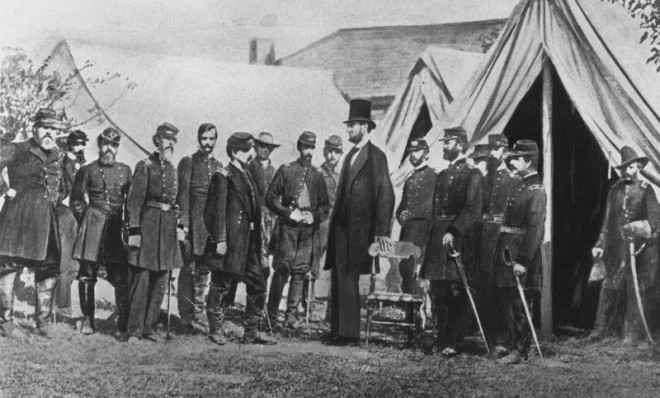Today in history: The birth of the federal income tax
In 1861, President Lincoln signed a new law to help pay for the Civil War


April 15, 1861: Following the Confederate shelling of Ft. Sumter, S.C., President Abraham Lincoln called for 75,000 volunteers to join the Union Army. 92,000 did, and the Civil War — the most devastating war in American history — was on. Lincoln quickly adapted to the role of commander-in-chief, assuming vast powers, many of which weren't granted to him by the Constitution. Supreme Court rulings declared Lincoln's wartime conduct unconstitutional. He ignored them, saying his priority was to preserve the Union.
April 15, 1861: Needing cash during the Civil War, President Lincoln signed the Revenue Act, imposing the first federal income tax. Lincoln asked for the first federal income tax — a 3 percent surcharge on income — because he recognized that Americans needed to pay for their wars.
April 15, 1865: President Abraham Lincoln died of an assassin's bullet. He was the 16th president, serving between 1861 and 1865. Lincoln — the first of four presidents to be assassinated — had been shot the night before while attending a play at Washington's Ford's Theatre. He was succeeded by Vice President Andrew Johnson.
The Week
Escape your echo chamber. Get the facts behind the news, plus analysis from multiple perspectives.

Sign up for The Week's Free Newsletters
From our morning news briefing to a weekly Good News Newsletter, get the best of The Week delivered directly to your inbox.
From our morning news briefing to a weekly Good News Newsletter, get the best of The Week delivered directly to your inbox.
April 15, 1986: President Ronald Reagan ordered Operation El Dorado Canyon, which limited air strikes against Libya and the government of Moammar Gadhafi.
Quote of the day
"We cannot escape history...the fiery trial through which we pass will light us down, in honor or dishonor, to the latest generation." — Abraham Lincoln
More from West Wing Reports...
A free daily email with the biggest news stories of the day – and the best features from TheWeek.com
-
 The best dark romance books to gingerly embrace right now
The best dark romance books to gingerly embrace right nowThe Week Recommends Steamy romances with a dark twist are gaining popularity with readers
-
 The ocean is getting more acidic — and harming sharks’ teeth
The ocean is getting more acidic — and harming sharks’ teethUnder the Radar ‘There is a corrosion effect on sharks’ teeth,’ a study’s author said
-
 6 exquisite homes for skiers
6 exquisite homes for skiersFeature Featuring a Scandinavian-style retreat in Southern California and a Utah abode with a designated ski room